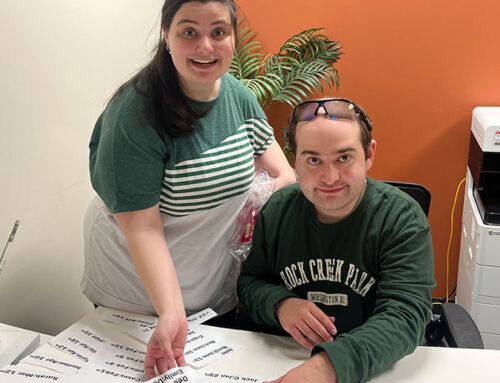The transition to college is bursting with new opportunities, newfound independence and an exciting academic landscape. It’s an exhilarating time in a young adult’s life. But for many young adults, adjusting to life in college can also be an overwhelming experience.
Being away from home for the first time, meeting new people, managing demanding coursework and simply adapting to a new environment presents a delicate balance of adventure and anxiety—especially for neurodivergent students.
To process and deal with that anxiety, it’s crucial for students to schedule “decompression” time for themselves as they learn how to manage their time at school successfully. One of the best ways to manage stress and decompress from a hectic school schedule is to get outside and start grounding.

Understanding the Importance of Grounding
Grounding (also known as Earthing) involves making direct contact with the Earth’s surface, typically by walking barefoot on natural ground. It allows you to absorb the Earth’s electrons, which have numerous health benefits, including reducing inflammation, relieving stress and improving sleep.
Unfortunately, so much of any given school day is spent indoors during classes, in cafeterias for meals or studying at home. On top of that, screen time among college students has increased dramatically over the last few years. A recent study from Harrisburg University revealed 80% of respondents spent an average between 7 and 10 hours per day in front of a screen.
When students make grounding a priority of their daily lives at school, not only do they reconnect with nature, but they learn how to harness its potential to improve their physical and mental well-being.
The Academic Benefits of Grounding
Students who consistently incorporate grounding practices into their schedules will reap tremendous benefits, including:
- Improved Focus and Concentration: Grounding experiences have been shown to enhance focus and attention, leading to improved academic performance. Students who regularly engage in earthing are likely to experience increased concentration and better retention of information.
- Reduced Stress and Anxiety: Modern school life can be stressful for students, educators, and staff alike. Grounding has a profound impact on reducing stress and anxiety levels, promoting a more relaxed and positive learning environment.
- Enhanced Immune Function: Earthing is believed to support the immune system by reducing inflammation and promoting overall health. As a result, students and staff may experience fewer sick days and increased well-being.
- Better Sleep Quality: Quality sleep is crucial for optimal academic performance and overall health. Incorporating grounding practices into the school routine can improve sleep patterns, leading to better-rested and more attentive individuals.

HOW TO START GROUNDING IN SCHOOL
Now that we’ve established the tremendous benefits of grounding, here are some practical strategies to incorporate grounding seamlessly into a busy school schedule:
Outdoor Spaces as Classrooms
Grab your books and a blanket! One effective way to begin grounding is to take advantage of the many designated natural spaces on school campuses. These areas can serve as refreshing spots for students to connect with nature during breaks, or even during extended study sessions after class or in the evenings.
Walking Barefoot on Campus
Whether it’s going to/from classes or short breaks between lectures, students should kick off their shoes and walk barefoot on the school grounds whenever possible. Taking a moment to walk on natural surfaces like grass or soil can have an immediate positive effect.
Nature Walks and Social Gatherings
Organizing regular nature walks and social gatherings is a great way to incorporate grounding while building connections with peers. These outings provide an opportunity for everyone to immerse themselves in natural settings, encouraging the absorption of Earth’s electrons while fostering a sense of camaraderie and appreciation for the environment.
Mindful Breathing Exercises
Incorporate mindful breathing exercises that involve conscious grounding techniques into classroom routines. These exercises can be done before or after lessons, or even during stressful exam periods. Mindful breathing can enhance focus and concentration while simultaneously promoting relaxation.
Outdoor Extracurricular Activities
When planning extracurricular activities, consider outdoor options that allow participants to connect with nature. Whether it’s gardening, outdoor sports or creative outdoor art sessions, these activities offer unique opportunities for grounding.
Kick Off Your Shoes and Start Grounding
The great thing about grounding is the effort-to-benefit ratio. Grounding is easy to do and doesn’t require a large chunk of time, but the benefits you get from it are immeasurable. Embracing grounding practices and incorporating them into a busy school schedule establishes a thriving educational environment that promotes physical, mental and emotional wellness.








